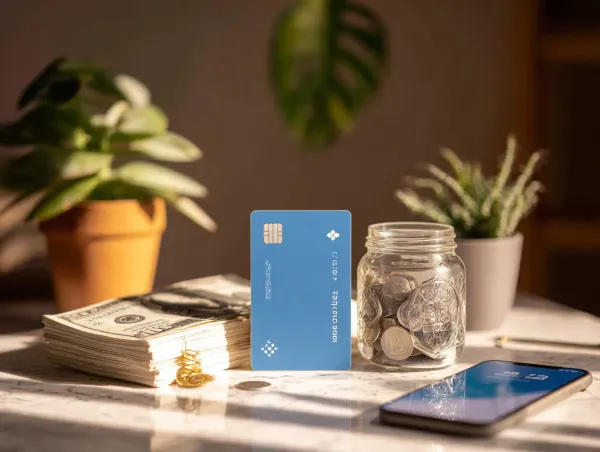Your Emergency Fund: The Financial Safety Net You Can't Afford to Ignore

Life is unpredictable. No matter how carefully you plan, unexpected events can and will happen. A sudden job loss, a medical emergency, a major car repair, or an unforeseen home issue can throw your finances into disarray if you're not prepared. This is where your emergency fund comes in – a financial safety net designed to cushion the blow of life's inevitable surprises. Often overlooked or deprioritized, an emergency fund is not a luxury; it's a fundamental pillar of financial security that you simply cannot afford to ignore. This guide will explain why an emergency fund is crucial, how much you should aim to save, where to keep it safe, and practical strategies for building and maintaining this vital financial buffer.
Why an Emergency Fund is Absolutely Crucial:
Think of your emergency fund as your financial first aid kit. Just as you wouldn't navigate life without basic medical supplies, you shouldn't navigate your finances without a readily accessible pool of money for unexpected crises. Here are some key reasons why an emergency fund is non-negotiable:
- Handles Unexpected Expenses: Life throws curveballs. Your car might break down, requiring costly repairs. A sudden illness could lead to unexpected medical bills. Your home might need urgent repairs. Without an emergency fund, you might be forced to rely on high-interest credit cards or loans, digging yourself into debt.
- Provides Job Loss Security: Losing your job is a stressful experience. An emergency fund can provide a financial cushion to cover your essential living expenses while you search for new employment, preventing you from making desperate financial decisions.
- Avoids Debt Accumulation: When unexpected costs arise and you lack savings, the easiest solution often seems to be reaching for a credit card. However, this can lead to a cycle of debt that's difficult to break. An emergency fund allows you to handle these situations without 1 incurring high-interest debt.
- Offers Peace of Mind: Knowing you have a financial safety net in place can significantly reduce financial stress and anxiety. This peace of mind allows you to focus on navigating the emergency itself rather than panicking about how to pay for it.
- Prevents Derailing Long-Term Goals: Without an emergency fund, unexpected expenses might force you to withdraw from your long-term investments or halt progress towards your financial goals, such as saving for retirement or a down payment on a house.
How Much Should You Aim to Save in Your Emergency Fund?
The commonly recommended guideline is to save 3 to 6 months' worth of essential living expenses in your emergency fund. However, the ideal amount can vary based on your individual circumstances:
- Consider Your Job Security: If you work in a stable industry with high demand, you might lean towards the lower end of the range (3 months). If your industry is more volatile or you are self-employed with fluctuating income, aiming for 6 months or even more might be prudent.
- Evaluate Your Dependents: If you have dependents, having a larger emergency fund provides a greater safety net for your family.
- Assess Your Risk Tolerance: If you are naturally risk-averse, having a larger emergency fund can provide greater peace of mind.
- Factor in Potential Unexpected Costs: Consider any recurring or potential large expenses specific to your situation (e.g., older home with potential repair needs).
To calculate your target emergency fund amount, track your essential monthly expenses, including rent/mortgage, utilities, groceries, transportation, and minimum debt payments. Then, multiply that total by your chosen number of months (3 to 6).
Where to Keep Your Emergency Fund Safe and Accessible:
The primary goal of your emergency fund is accessibility. You need to be able to access the money quickly when an unexpected need arises. Therefore, it's generally not advisable to keep your emergency fund tied up in long-term investments where accessing the funds might take time or incur penalties. Ideal places to keep your emergency fund include:
- High-Yield Savings Accounts: These offer a safe place to keep your money while earning a modest interest rate, helping it grow slightly over time.
- Money Market Accounts: Similar to high-yield savings accounts, they often offer competitive interest rates and easy access to funds.
- Consider a Separate, Easily Accessible Checking Account: While it won't earn much interest, having a dedicated checking account for your emergency fund can make it easy to access funds via debit card or online transfer.
Practical Strategies for Building Your Emergency Fund:
Building a substantial emergency fund can feel daunting, but breaking it down into smaller, manageable steps makes it more achievable:
- Start Small: Even small, consistent contributions can add up over time. Begin by saving a small amount each week or month and gradually increase it as your budget allows.
- Automate Savings: Set up automatic transfers from your checking account to your emergency fund on payday. This "set it and forget it" approach ensures consistent saving.
- Cut Non-Essential Expenses: Review your spending and identify areas where you can cut back on non-essential items like dining out, entertainment, or subscriptions. Redirect those funds to your emergency fund.
- Dedicate Windfalls: When you receive unexpected income like a tax refund, bonus, or gift, consider allocating a portion or all of it to your emergency fund.
- Set Savings Goals and Track Progress: Having a visual goal and tracking your progress can provide motivation and keep you on track.
- Consider a "Side Hustle": Explore opportunities to earn extra income that can be directly allocated to your emergency fund.
- Make it a Priority: Consciously prioritize building your emergency fund. View it as an essential financial goal, just like paying bills or saving for retirement.
The Difference Between an Emergency Fund and Savings for Goals:
It's important to distinguish between your emergency fund and savings for specific goals (e.g., a down payment, a vacation). Your emergency fund is specifically for unexpected, urgent expenses. Withdrawing from it for planned purchases defeats its purpose. Keep your emergency fund separate from your goal-based savings.
Replenishing Your Emergency Fund:
If you have to use your emergency fund, it's crucial to make replenishing it a top priority. Adjust your budget to allocate more funds towards rebuilding your safety net as quickly as possible.
Conclusion:
Your emergency fund is more than just a savings account; it's a vital layer of financial protection that provides security, peace of mind, and the ability to navigate life's unexpected challenges without derailing your long-term financial goals. Don't wait for an emergency to realize its importance. Start building your financial safety net today, even if it's with small, consistent steps. It's an investment in your future financial well-being that you will undoubtedly be grateful for when life throws its inevitable curveball.



